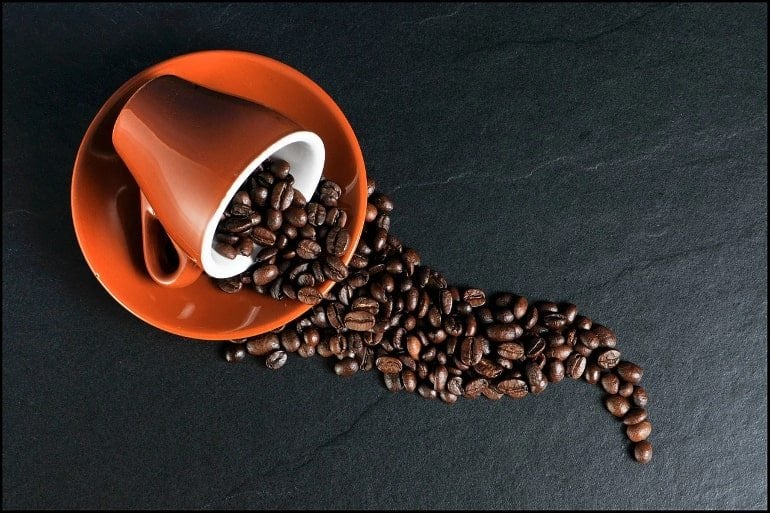Summary: Caffeine improves visual acuity by increasing alertness and detection accuracy for moving objects, a new study reports.
Source: University of Waterloo
In the first study of its kind to explore caffeine’s effects on dynamic visual skills, researchers concluded that caffeine increases alertness and detection accuracy for moving targets. Caffeine also improved participants’ reaction times.
“A lot of what happens in our environment is moving—like trying to cross a busy intersection as a pedestrian or finding something on a shelf as you’re walking through the aisles of a grocery store,” said Dr. Kristine Dalton of Waterloo’s School of Optometry & Vision Science.
“Testing visual acuity under dynamic conditions can provide more information about our functional performance in these scenarios than traditional static visual acuity measurements alone.”
Visual acuity, also known as clarity of vision or sharpness of vision, refers to a person’s ability to detect and recognize small details and can be measured under static (stationary) or dynamic (moving) conditions. While both static and dynamic visual acuity provide important information about how we interact with the world around us, dynamic visual acuity skills are especially important in the many daily activities in which we, or objects around us are moving.

“While we already know that caffeine increases the velocity of rapid-eye movements, we wanted to further investigate how exactly caffeine enhances visual processing and facilitates the detection of moving visual stimuli by testing dynamic visual acuity,” said co-author Beatríz Redondo of the University of Granada’s Department of Optics.
On two separate days, half of the study’s participants ingested a caffeine capsule (4mg/kg) while the other half ingested a placebo capsule. Using a computer-based test designed and validated at the University of Waterloo, each participant’s dynamic visual acuity skills were measured before and 60 minutes after caffeine ingestion.
Researchers found that participants who had ingested the caffeine capsules showed significantly greater accuracy and faster speed when identifying smaller moving stimuli, inferring caffeine positively influences participants’ stimulus processing and decision-making. Eye movement velocity and contrast sensitivity, which are implicated in dynamic visual acuity performance, were also sensitive to caffeine intake.
“Our findings show that caffeine consumption can actually be helpful for a person’s visual function by enhancing alertness and feelings of wakefulness,” Dalton said. “This is especially true for those critical, everyday tasks, like driving, riding a bike or playing sports, that require us to attend to detailed information in moving objects when making decisions.”
About this visual neuroscience research news
Author: Press Office
Source: University of Waterloo
Contact: Press Office – University of Waterloo
Image: The image is in the public domain
Original Research: Open access.
“Effects of caffeine ingestion on dynamic visual acuity: a placebo-controlled, double-blind, balanced-crossover study in low caffeine consumers” by Beatríz Redondo et al. Psychopharmacology
Abstract
Effects of caffeine ingestion on dynamic visual acuity: a placebo-controlled, double-blind, balanced-crossover study in low caffeine consumers
Background
Acute caffeine ingestion has been associated with improvements in cognitive performance and visual functioning. The main objective of this study was to determine the effects of caffeine intake on dynamic visual acuity (DVA).
Methods
Twenty-one low caffeine consumers (22.5 ± 1.6 years) took part in this placebo-controlled, double-blind, and balanced crossover study. In two different days and following a random order, participants ingested either caffeine (4 mg/kg) or placebo, and DVA was measured after 60 min of ingesting the corresponding capsule. A recently developed and validated software (moV& test, V&mp Vision Suite, Waterloo, Canada) was used to assess DVA.
Results
We found a greater accuracy for both the horizontal and random motion paths of DVA after caffeine ingestion (p < 0.001 and p = 0.002, respectively). In regard to the speed of the response, our data revealed that caffeine intake was associated with a faster reaction time for horizontally (p = 0.012) but not for randomly (p = 0.846) moving targets. Also, participants reported higher levels of perceived activation after consuming caffeine in comparison to placebo (p < 0.001).
Conclusions
Our data suggest that caffeine intake (i.e., a capsule containing 4 mg/kg) has an ergogenic effect on DVA, which may be of special relevance in real-word contexts that require to accurately and rapidly detect moving targets (e.g., sports, driving, or piloting).






